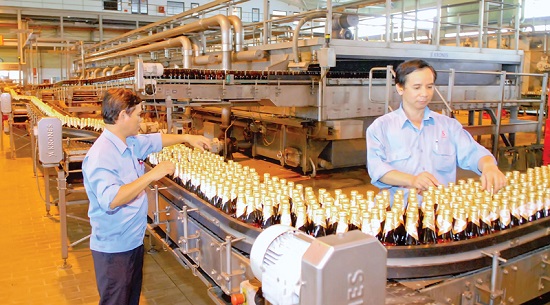Vietnam: 2018 promising for foreign capital inflows
Foreign capital inflows through capital contribution and share purchase surged in 2017 and continue to increase in early 2018.
Notably, foreign investors posted 415 deals of capital contributions while share purchase in Vietnam firms hit over US$356 million in January 2018, marking an on-year increase of 54.7%, according to the Foreign Investment Agency, Ministry of Planning and Investment (MPI).
Investors with large direct investment also favored this as an attractive investment channel, saving both time and money. With US$741 million, Korea was among the largest investors in Vietnam through capital contribution and share purchase in 2017, besides other nations such as Japan with US$434 million, Singapore with US$611 million and Thailand with US$323 million.
The year 2017 closed with many equitization deals and numerous successful divestments of state capital in Vinamilk and Sabeco. Not only the large investors but also foreign ones showed interest in contributing capital, buying shares of Vietnamese firms in and out of the stock exchange.
For example, Synnex Technology International Corporation (Synnex-USA), VinaCapital and Dragon Capital acquired shares in FPT Retail. In 2018, it is expected that 181 State-owned enterprises will implement IPOs and divest capital, accounting for 70% of the total companies expected to divest in the 2018-2020 period. Experts predict that foreign direct investments (FDI) through capital contribution and share purchase will continue to increase significantly in the coming years.
Investment attraction from real estate and consumption
“Vietnam is continuing to accelerate reform and equitization of SOEs, thus causing competition in some areas previously held by the State. Foreign investors are very interested in the most recent steps of Vietnamese government on equitization and divestment”, Catherine Wong Siow Pingthe, Singapore’s Ambassador to Vietnam. The diplomat believes that the areas of real estate and consumption such as food, retail, telecommunications, health and education will attract many foreign investors.
Meanwhile, Pham Hong Hai, General Director of HSBC Vietnam, stated that the Vietnamese government has conveyed a clear message of its determination to accelerate equitization in alcohol, beer and cigarettes companies, which has resulted in good market signals.
Attractive investment opportunities are welcomed by many foreign investors. The presence of foreign investors will reduce the pressure of banks’ dependence on domestic enterprises, added Hai of HSBC Vietnam.
However, experts said that the tight control and supervision of capital contribution and share purchase by foreign investors is necessary in order to not only create conditions for foreign investors to do business in Vietnam, but also to allow the market to take corrective measures.
In fact, there have been concerns over the possibility that foreign firms will acquire domestic businesses in the retail and real estate sectors through investment in equity and share purchase. For Phan Huu Thang, former director of the Foreign Investment Department (MPI), many Vietnamse enterprises are being bought by foreign enterprises. Although this is legal, if this activity gets out of hand, then it could put Vietnamese investors at a distinct disadvantage.
Source: http://www.hanoitimes.vn/investment/news/2018/02/81E0C1DC/2018-promising-for-foreign-capital-inflows/


 Thailand
Thailand




